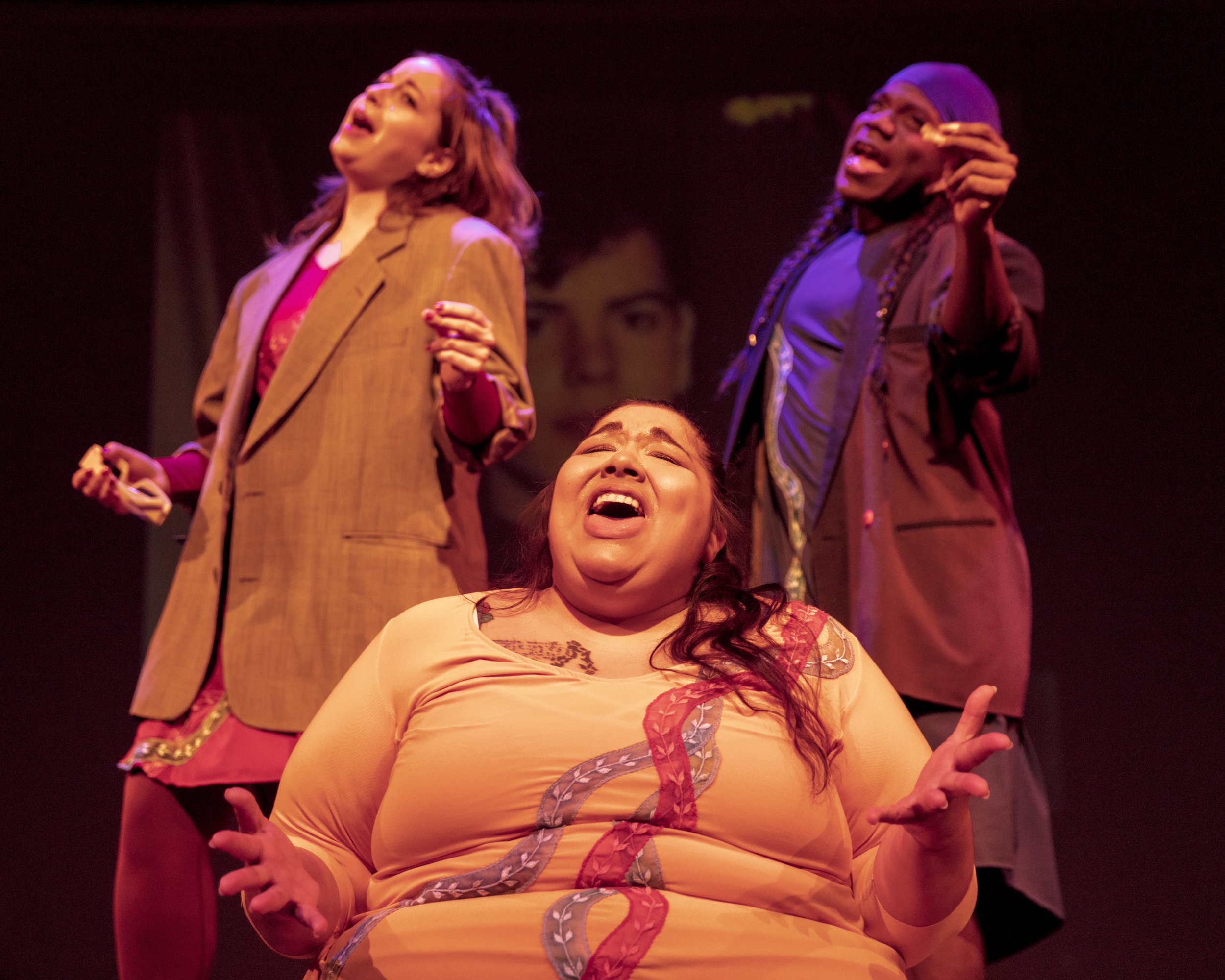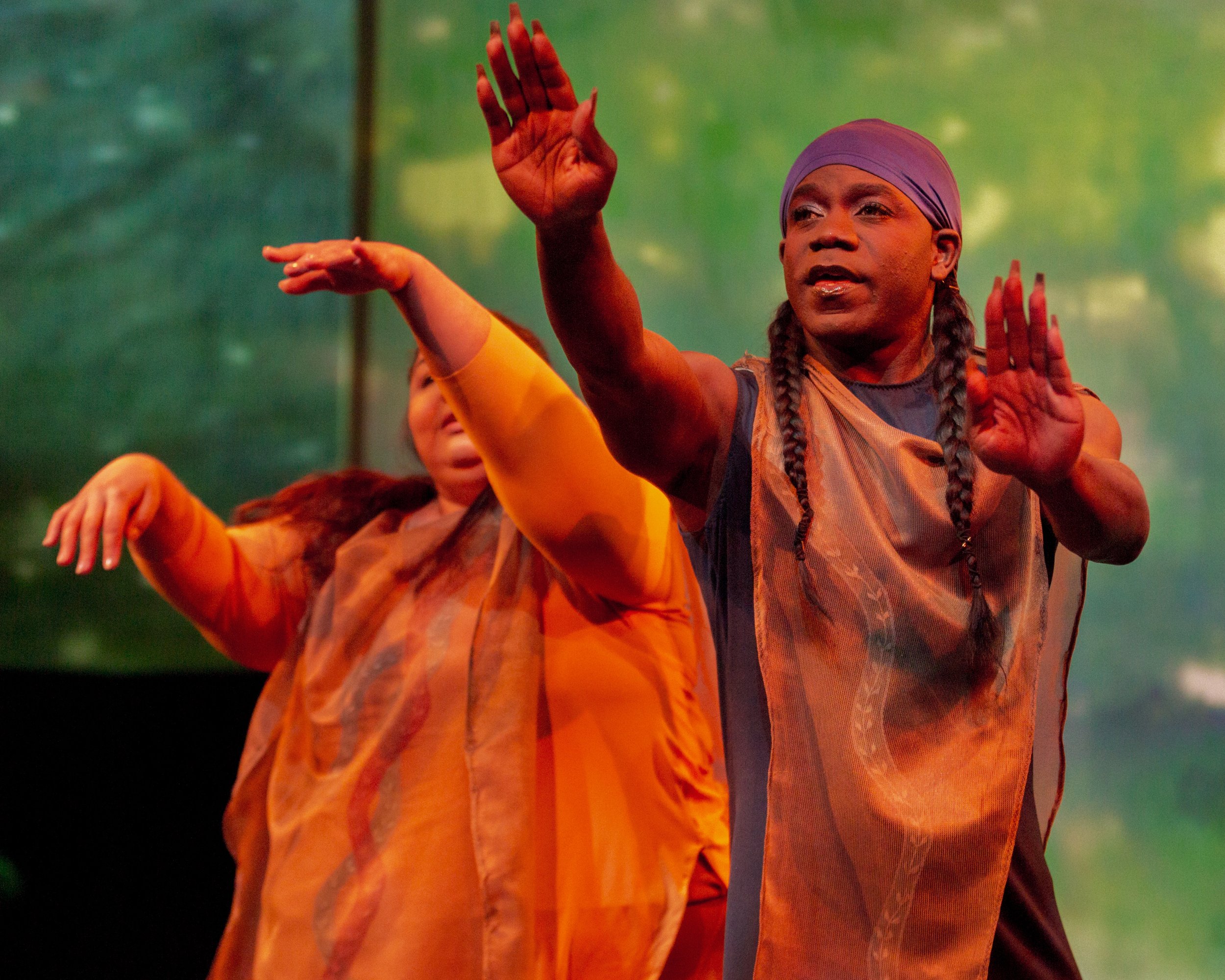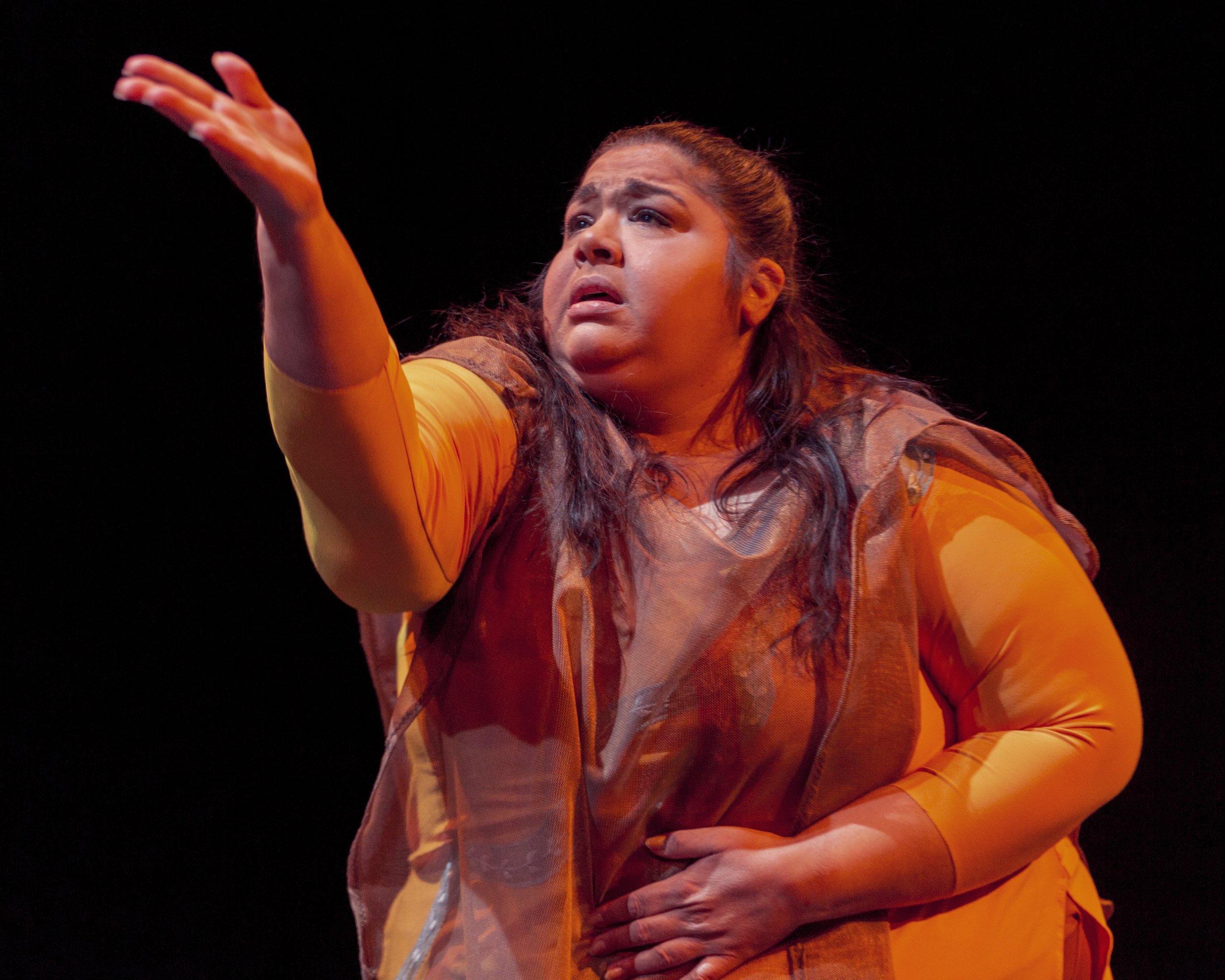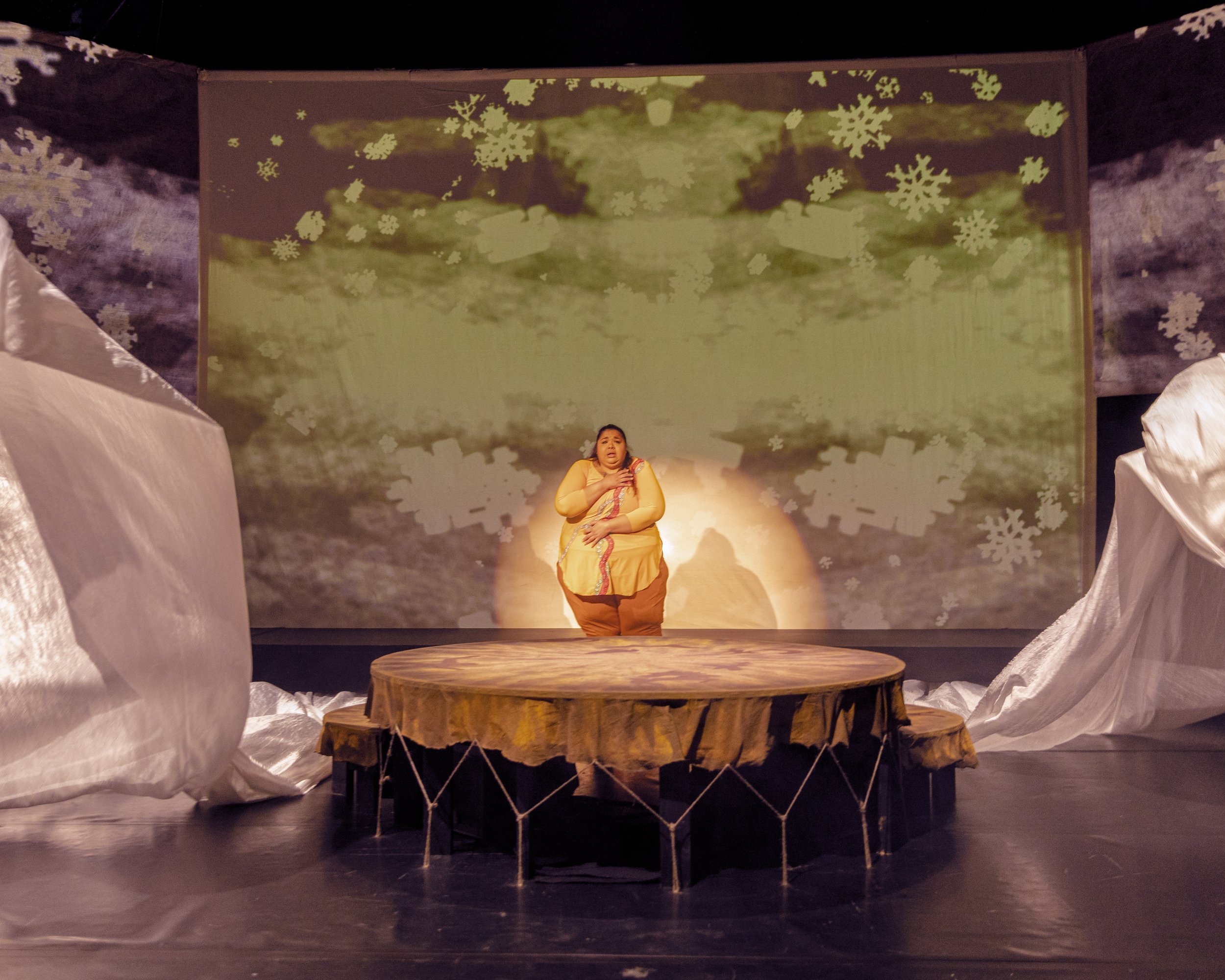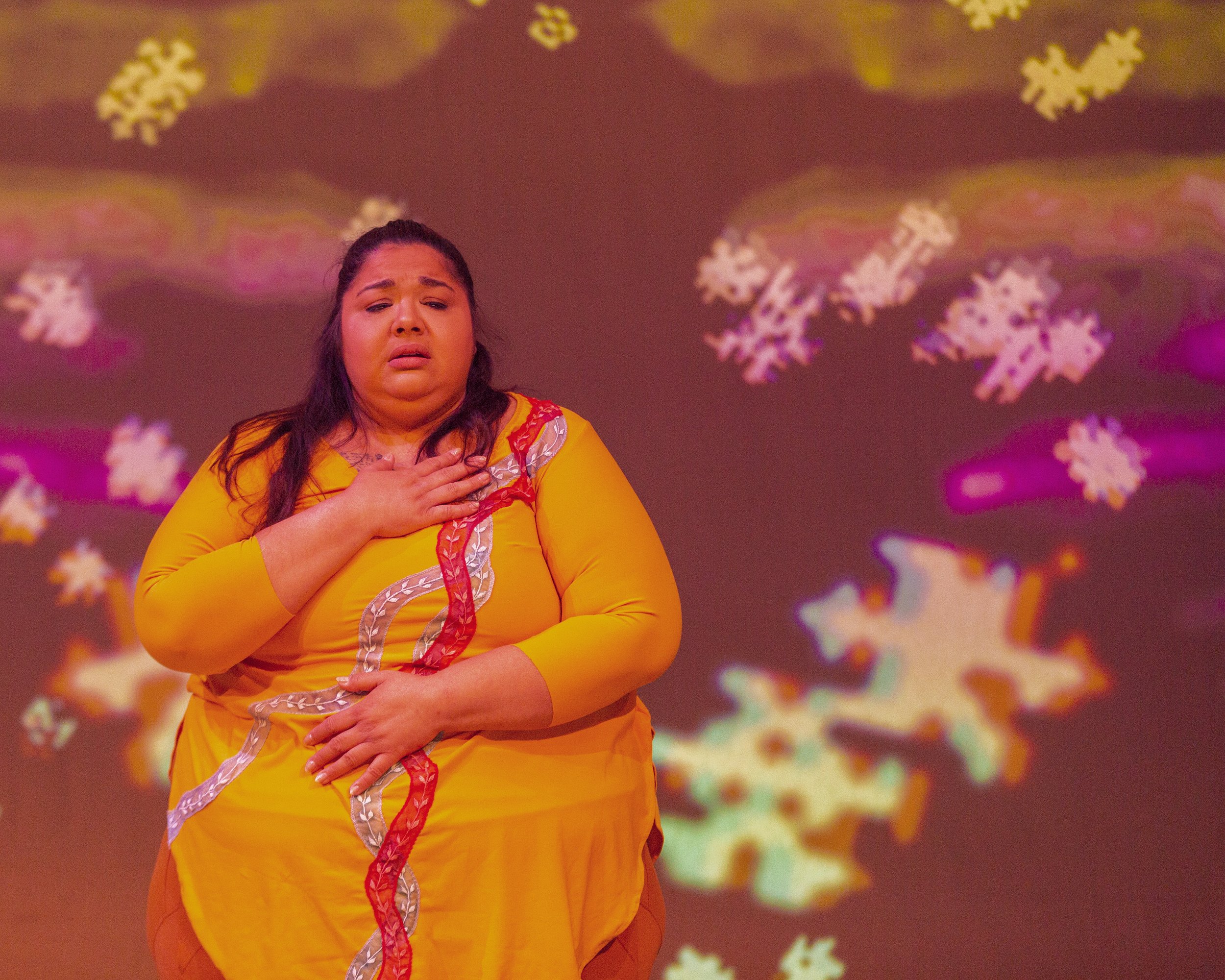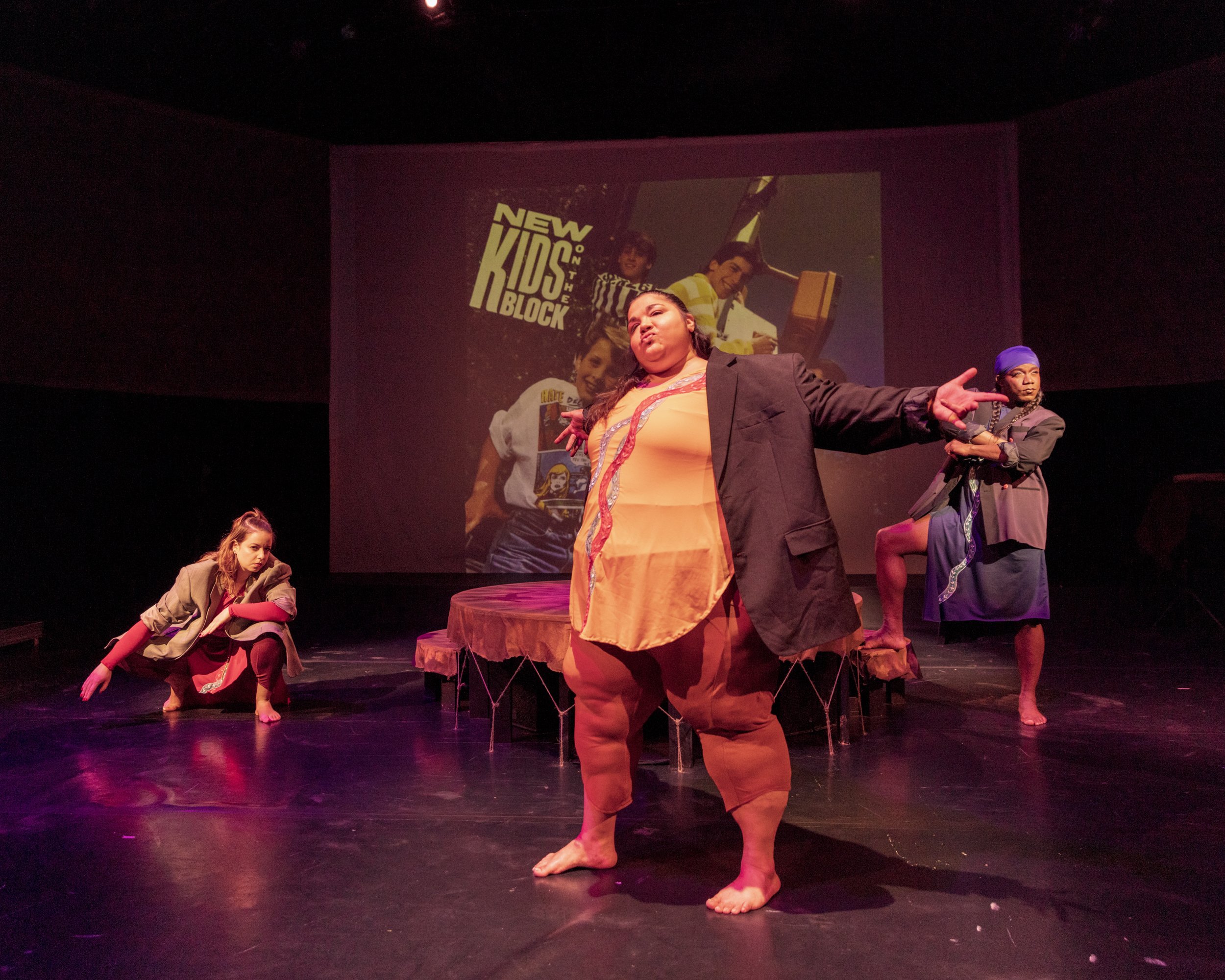meet the team
manidoons collective is a circle of artists creating Indigenous performance.
The artistic leadership includes Yolanda Bonnell (Ojibwe-South Asian) and Cole Alvis (Métis) both based in Tkarón:to. manidoons collective recognizes the importance of collaborating with Indigenous communities, specifically Indigenous women, 2-Spirit, trans and non-binary storytellers.
Their first production bug, created and performed by Yolanda Bonnell, was nominated for four Dora Mavor Moore awards and has toured across Turtle Island. The play is published by Scirocco Publishing and was nominated for a 2020 Governor General’s Award for English-language drama.
Their current production White Girls In Moccasins by Yolanda Bonnell has been developed in residency, and will premiere as a coproduction with, Buddies In Bad times Theatre and manidoons collective in Spring 2022.
MARCH 9 - 20, 2022 - live presentation
March 26 – April 8, 2022 - Digital Broadcast
A MANIDOONS COLLECTIVE + BUDDIES IN BAD TIMES THEATRE PRODUCTION
Gi-bgizoomgad epiichi biinjii’yii debwewin-nim — you swim in your truth —
Miskozi goes on a search for herself and her culture, accompanied by her inner white girl, Waabishkizi, and guided by Ziibi, a manifestation of an ancestral river.
An irreverent reclamation story, White Girls in Moccasins world-hops between dreams, memories, and a surreal game show as Miskozi grapples with living her own truth in a society steeped in white supremacy.
We invite guests to our show to make donations to Toronto Indigenous Harm Reduction.
White Girls In Moccasins
creative team
Yolanda Bonnell // playwright, choreographer & performer
Cole Alvis + Samantha Brown // co-directors
Elizabeth Staples // performer
Ravyn Wngz // performer
Trevor Schwellnus // set & projection design
Rihkee Strapp // animation & associate video design
Echo Zhou // lighting design
Sruthi Suresan // associate lighting design
Maddie Bautista // composition and sound design
Rachel Forbes // costume & props design
Asli Ozuak // associate costume design & set + props coordinator
Natércia Napoleão // associate producer
Steph Raposo // production manager
Dylan Tate-Howarth // production stage manager
Ada Aguilar //rehearsal stage manager
Sheila Demerah // moccasins
Mary Magiskan // belt
Aqua Nibii Waawaaskone // drum
Nathenia Bonnell // drum painter
Mary Bonnell // gramma’s hands
Pauline Shirt // knowledge keeper
Amy Ireland + Natasha Bacchus // Deaf interpreters
Lena Recollet + Sally Atchitawens-Recollet + Roger Roulette // Anishinaabemowin language keepers
Digital Broadcast Team
Justin Moy // video recording and editing
Courage Bacchus + Amy Ireland // Deaf interpreters
Carmelle Cachero + Marcia Martins // ASL interpreters
Alexa Hickox // ASL interpretation editing
Theo Belc + Kay Chan + Sally Roberts // captioning support
Rogue Benjamin + Rich Manilla + Aneesa Mustafa // ASL support
Jac Costa + Steph Raposo + Rachel Shaen // rehearsal recording
Press
“White Girls in Moccasins is a deep introspective reflection across time about what it means to be an Indigenous woman or women of colour living in a white supremacist society. It’s a representation of stories that could never be told before because it wasn’t for who was the norm or who was the standard. It also reflects the resilience of Indigenous women surviving and the restoration of something inside of us that was never lost because we carry the blood memory of our ancestors before us.”
Yolanda Bonnell on how we are never truly lost
By Erica Commanda March 19, 2022
“Of all the productions I’ve seen in the staggered theatre reopenings during the pandemic, this is the show that has best understood the possibilities and the potential of the art form. This is theatre as ceremony, as ritual. The efficiency and ease with which the creative team fill in Miskozi’s story are impressive, whether it’s presenting the young girl watch her Gramma bake (that white flour becomes very symbolic) or seeing her witness abuse and then enter abusive relationships herself.”
White Girls In Moccasins is a powerful Indigenous coming-of-age play
By Glenn Sumi March 13,2022
“Bonnell’s storytelling feels audacious in the best ways: She shows stories that most First Nation, Métis and Inuit people experience in one way or another but don’t often speak publicly about. It’s an unusual way to see ourselves and be seen. For me, it’s as if I were watching my own story.
”
By Robyn Grant-Moran March 11, 2022
